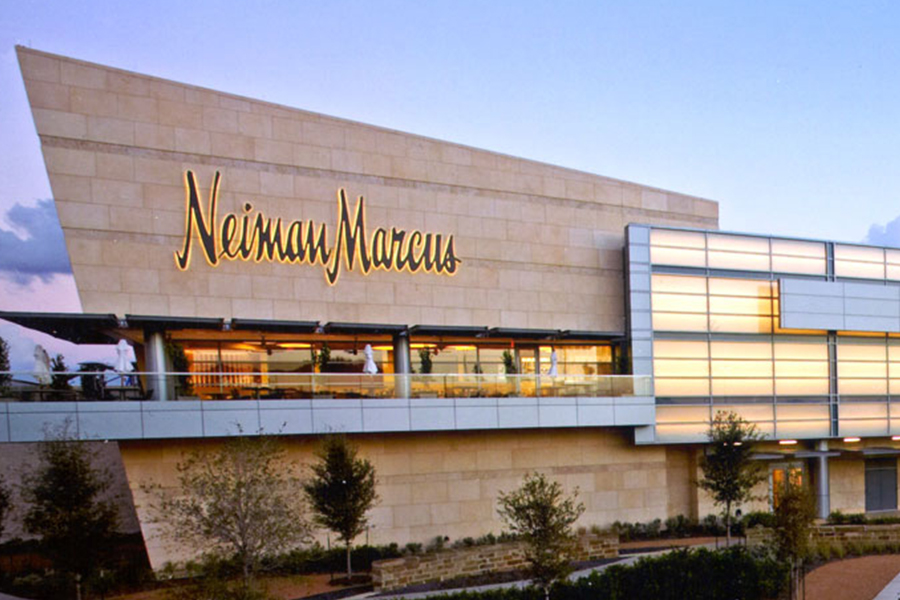Why Farfetch invested $200 million in Neiman Marcus
Farfetch will invest up to $200 million in Neiman Marcus Group (NMG), which owns Neiman Marcus and Bergdorf Goodman, in a strategic partnership that bridges the next generation of luxury retail with a long-standing industry institution.
Neiman Marcus will use the investment to expand its innovation and digital capabilities, according to the companies. NMG will use Farfetch Platform Solutions to re-platform Bergdorf Goodman’s website and mobile app; and both Bergdorf Goodman and Neiman Marcus will join the Farfetch Marketplace as partners, expanding the marketplace’s brand offerings in key locations.
Growing the e-commerce business is “not a defensive move — it’s an offensive one,” Neiman Marcus Group CEO Geoffroy van Raemdonck tells Vogue Business. Online accounts for one-third of Neiman Marcus Group’s total sales, though this figure does not include in-store digital sales by sales associates. Partnering with Farfetch allows the company to improve the customer experience and expand global reach. “Being on the platform allows us to move even further in how we brand the experience on [Bergdorf Goodman’s e-commerce site] and how we show the product assortment. Their architecture is the best class,” he says.
The partnership underscores Farfetch’s growing sway in the luxury sector. The marketplace has been steadily expanding Farfetch Platform Solutions, which has now been widely adopted in the luxury fashion industry. Retail giants Harrods and Browns and brands including Off-White and Roberto Cavalli are leveraging the company’s technological capabilities in their e-commerce platforms. It’s a competitive advantage in an industry that is increasingly moving online and adapting the marketplace model. In November, Farfetch and Richemont confirmed they were in advanced talks to further their partnership, which could include Farfetch making a minority investment in Richemont-owned rival Yoox Net-a-Porter, and YNAP switching to Farfetch Platform Solutions.
Neiman Marcus has been undergoing a turnaround after filing for bankruptcy in 2020. The partnership with Farfetch is an attempt to revive its position as a relevant luxury player, experts say. “Farfetch’s investment in Neiman Marcus is a vote of confidence by a new-generation luxury player in a more traditional business,” says Globaldata managing director Neil Saunders in an analyst note. “Working closely with Farfetch, and being on their platform, will allow Neiman Marcus to connect more with young luxury shoppers. This has long been an Achilles’ heel of the company as its focus on older consumers is not conducive to generating future growth. Taking the brands to more international consumers is also a possibility, which provides another vector for expression.”
Farfetch founder, chairman and CEO José Neves is betting that digital will play a key role in defining the US luxury retail winners. “Whilst the US is proving to be a long lasting source of growth for the luxury industry, fueled by younger generations who are highly engaged with the category, businesses will have to significantly upgrade their digital capabilities — powering both online and offline customer journeys — to meet these new customer expectations and stay ahead in what is going to be a competitive space in the coming years,” a statement from Neves reads.
In November 2020, Farfetch, Alibaba Group and Richemont partnered to accelerate the luxury sector’s digital offerings, introducing the Luxury New Retail initiative that uses Farfetch and Alibaba’s omnichannel technologies to offer e-commerce solutions to luxury brands and multi-brand retailers.
Neves’s vision for luxury retail includes physical retail, too. “Our vision for the future of luxury — which we call Luxury New Retail — is about the convergence of the physical experience, as the vast majority of sales are still in physical stores,” he tells Vogue Business. “Even if you fast forward five years, let’s say two thirds of transactions are going to happen in physical stores, but not in the way they happen today. They will be augmented by digital technologies and they will be completely convergent with those digital technologies.”
“For Farfetch, the addition of Neiman Marcus gives it access to a physical retailer that has long had its finger on the pulse of US luxury,” says Saunders. “It will also allow them to learn more about how consumers shop across different channels — a possible prelude to them making further moves into physical or omnichannel retail.”
In 2015, Farfetch acquired British luxury retailer Browns as part of its omnichannel growth strategy. In 2021, Farfetch’s revenue grew 35 per cent to $2.3 billion year-on-year, with its digital platform accounting for $526 million in revenue in the fourth quarter. Other recent acquisitions include resale-tech service Luxclusif in December 2021 and beauty marketplace Violet Grey in January 2022.
It’s Farfetch’s tech-first approach and the combination of its white label platform with its marketplace that set it apart from competitors, says Neves. “These two [offerings] go together and enhance everything we develop for Farfetch and allow us to constantly stay ahead of the game in terms of the luxury experience that consumers are expecting today.”
Source: Vogue Business




